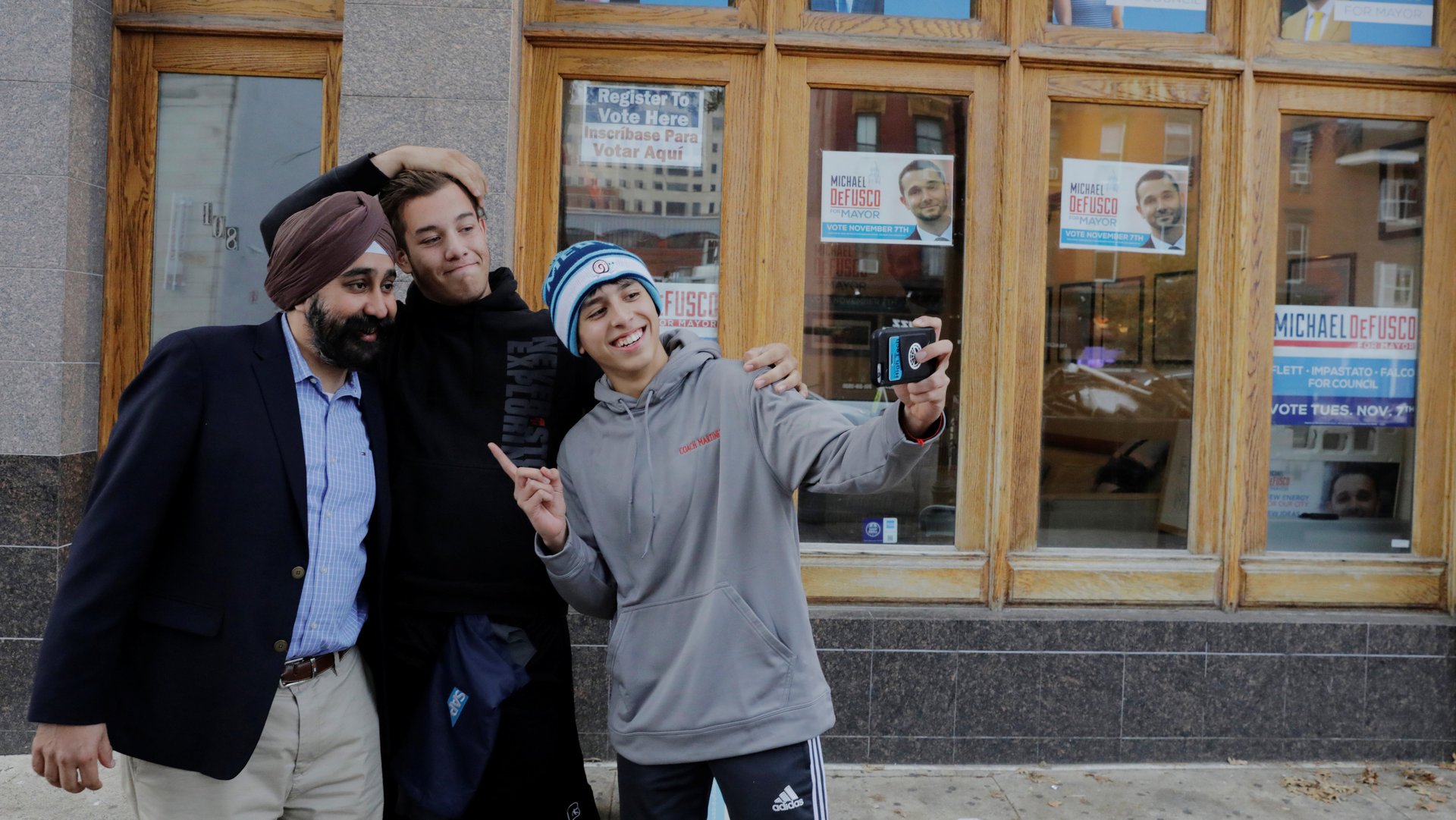Younger Americans likely drove the recent string of historic election victories
America saw three firsts this week: the first openly transgender person—Danica Roem—to be elected to a state legislature; the first black transgender woman—Andrea Jenkins—to be elected to a city council; and the first Sikh—Ravi Bhalla—to be elected a city mayor in New Jersey.


America saw three firsts this week: the first openly transgender person—Danica Roem—to be elected to a state legislature; the first black transgender woman—Andrea Jenkins—to be elected to a city council; and the first Sikh—Ravi Bhalla—to be elected a city mayor in New Jersey.
That such progressive candidates won might seem surprising in Donald Trump’s America. He ran on the “Muslim ban,” after all. Since he has come to power, courts have held him back on that ban and his trans military ban, but he has been able to get the justice department to start investigating universities on affirmative action.
Perhaps it is the severity of Trump’s positions on minorities that led to a recent string of historic, progressive election victories. And one demographic is likely the driver: young Americans.
The official state turnout figures in Virginia, for example, show that the winning Democratic governor candidate Ralph Northam got 1.4 million votes, 400,000 more votes than his Republican rival Ed Gillespie. Though we don’t have official figures about the demographics yet, a Washington Post exit poll showed that Northam won 69% of the vote among 18-29 year-olds compared to Gillespie’s 30%. Better still, Northam got 15% more of the vote in that demographic than Hillary Clinton did during the 2016 presidential elections.
In Virginia, the youth voter turnout skyrocketed from 17% in 2009 to 34% in 2017, according to the Center for Information & Research on Civic Learning and Engagement. Though the same wasn’t true in all states: New Jersey, which was also electing a governor, saw youth turnout stay the same between 2009 and 2017.
Young people seem generally more open to socially progressive views. A Pew poll published in Octobers showed that 83% of 18- to 29-year-olds said homosexuality “should be accepted by society” compared to 58% of those aged 65 and older.
But voters, and candidates, didn’t necessarily focus on identity in the ballot box. Roem, who became the first transgender person to be elected to a state legislature, made transportation and infrastructure her main issues. “Her victory was unquestionably historic,” Gregory Angelo, the president of the Log Cabin Republicans (the nation’s leading conservative LGBT advocacy group), told PBS. “What’s interesting to me is she made history without even trying.”